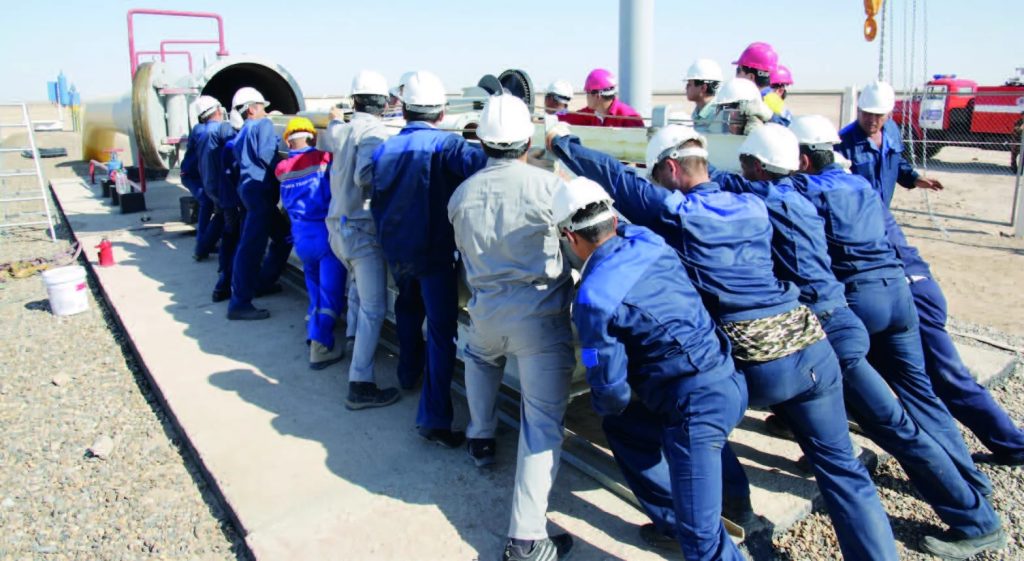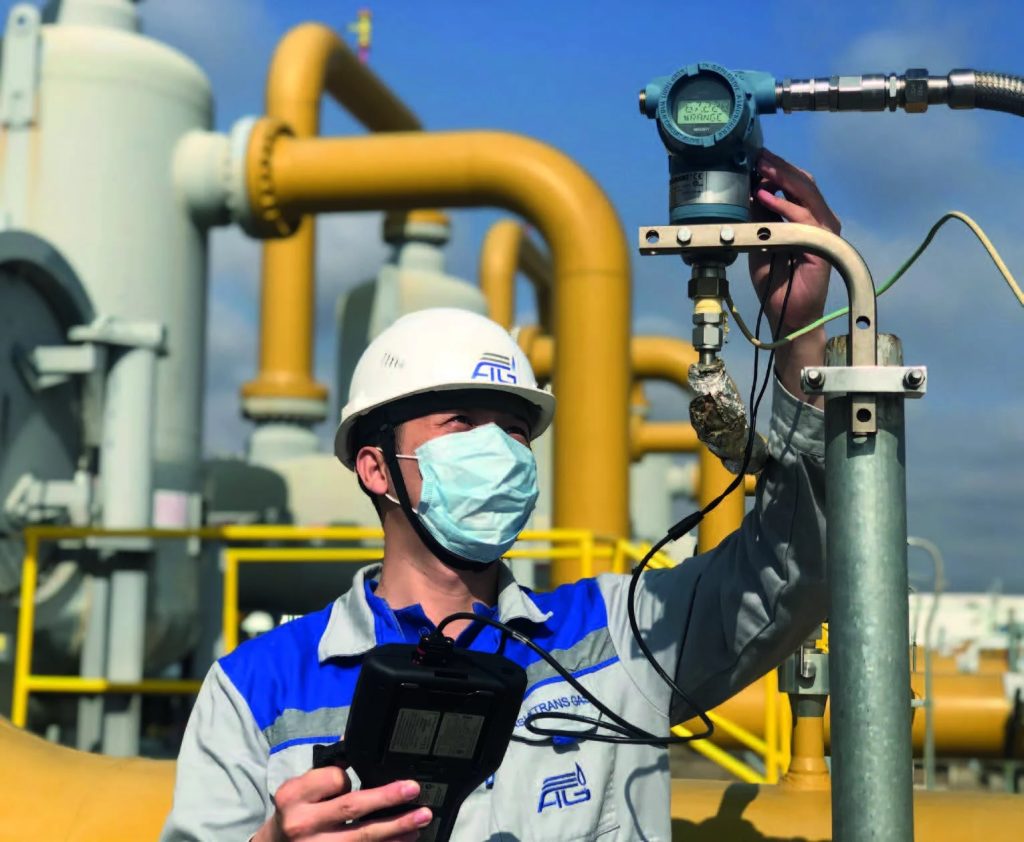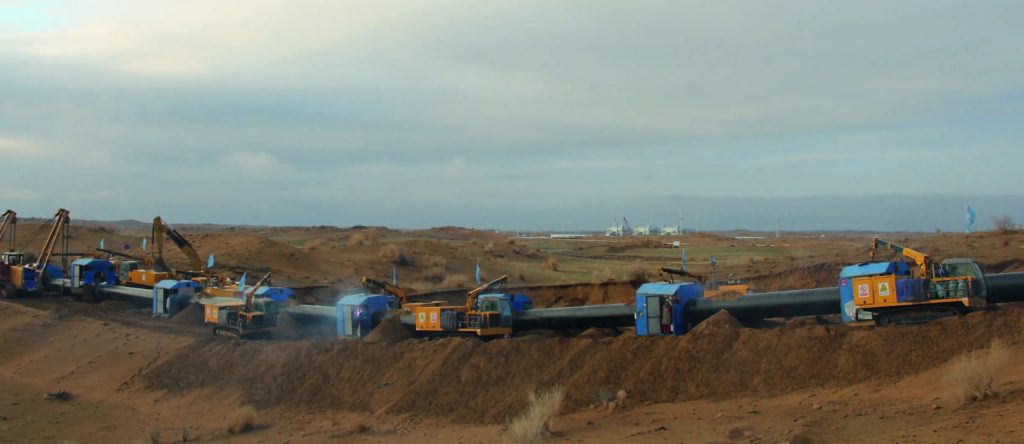In modern conditions, a stable supply of energy resources to the economy comes to the fore. The Central Asian countries are actively cooperating with China in this area, ensuring its needs for fossil fuel. The basis of this partnership is a unique project for the construction of the Turkmenistan–Uzbekistan–Kazakhstan–China gas pipeline, which entered the Guinness Book of Records as the longest one in the world.
Some records
The Turkmenistan– Uzbekistan– Kazakhstan–China gas pipeline has a total length of about 9,000 kilometers, while the length of the Uzbek section is 530 kilometers. Uzbekistan benefits greatly from this project: it sells gas, taxes come from the operation of the pipeline, jobs are created and, importantly, local specialists gain scientific and technical experience in servicing modern equipment.
The throughput capacity of all three lines is 50 billion cubic meters of gas per year. At the same time, the third line of the gas pipeline was built in a little less than a year, which became a world record for the speed of construction of such facilities. The cost of all three lines is US$ 4 billion.
In October 2018, Wang Yilin, Chairman of China National Petroleum Corporation, was awarded the Order of “Dustlik” (“Friendship”) in recognition of his important contribution to the economic and social development of Uzbekistan.
Today, the gas pipeline makes a tangible contribution to improving the lives of people along its route, strengthens friendship between the peoples of the two countries and expands Chinese-Uzbek economic and trade cooperation. This is not only a mutually beneficial and large-scale project, but also a friendship bridge to strengthen mutual trust between China and Uzbekistan.
Uzbek section
Fifteen years ago, on 30 April 2007, the Governments of China and Uzbekistan signed an agreement on the construction and operation of the gas pipeline. Three months later, on 31 July, the China National Petroleum Corporation (CNPC) and the National Petroleum Holding Company of Uzbekistan signed a similar document, thus launching the project.
In January 2008, a special company Asia Trans Gas (ATG) was established based on a 50-50 equity participation between the Chinese TAPLine and the National Oil and Gas Holding Company of Uzbekistan for the construction of a branch line through the territory of Uzbekistan. In the future, the new company became an operator of the gas pipeline.
Construction of the pipeline started in June 2008. And it was laid in record time. The first gas went through the pipe on 1 December 2009. In October 2010, line “B” was put into operation.
The first two lines were intended for the supply of natural gas from Turkmenistan to China. During their construction, Tashkent and Beijing decided to supply Uzbek gas to the Chinese market. Thus, Uzbekistan has pledged to supply China with 10 billion cubic meters of natural gas annually. This line was also built in a short time, and on 31 July 2012, gas from Uzbekistan started flowing to China.
Now the plans are for the construction of the fourth line “D”. It will not run parallel to the existing lines, but along a different route, through the Surkhandarya region.
According to ATG, as of 31 December 2020, 572 employees were involved in the operation of the gas pipeline, including 135 specialists from China and 437 Uzbek staff.
According to Sobir Latipov, First Deputy General Director of ATG, working with a large team is a real art. He explains the relationship between local specialists and employees from China in one sentence: “We have become like a family!”
“Uzbeks and Chinese go to each other’s birthdays and other holidays. If someone has a wedding, then all the Chinese staff goes to the festive pilaf. We all take care of each other, we help when troubles happen,” the interlocutor noted.
He is very pleased that the company managed to build sincere friendly relations.
“In other joint ventures, everything is different, there are more business relations. We have a real family, perhaps the similar mentality of the Chinese and Uzbeks contributes to this,” he said.
Serious attention is paid to personnel training and professional development. Continuous study and additional courses is a routine for ATG. In addition, since 2010, it has been practiced to send local employees to study in China. Sometimes they study for six months at leading specialized universities in Beijing, Qingdao and Xi’an.
University graduates are hired every year. An experienced mentor is assigned to each new specialist. Trainings are also held with the invitation of specialists from General Electric, Huawei and Caterpillar, where they teach the technological subtleties of handling their equipment.
Every year Asia Trans Gas allocates budget funds for the provision of various social assistance.
“We purchased office equipment for schools in Bukhara and Navoi regions, repaired a medical center in the city of Karakul, allocated money for surgery for a seriously ill patient, made gifts to Olympic champions in 2016, bought two reanimobiles for Bukhara, and during the pandemic purchased oxygen concentrators for hospitals,” Sobir Latipov said. ///Podrobno.uz, 1 September 2022



